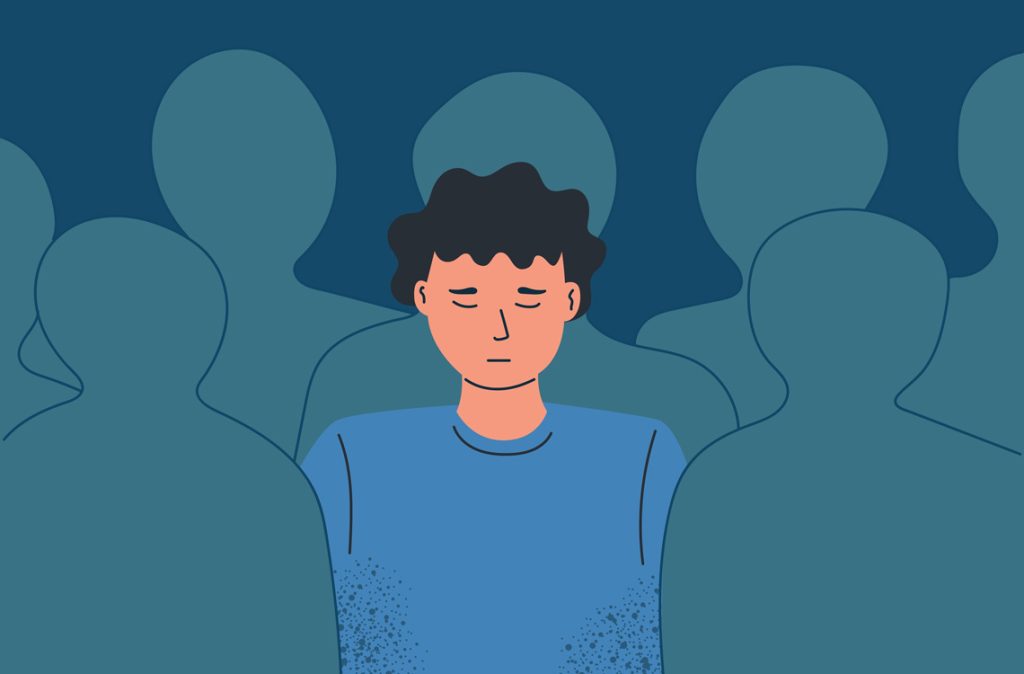In a city where people are always buzzing around — rushing to school, hustling at work, swiping on phones — is it strange how we have never felt more…alone?
Welcome to the loneliness epidemic, where despite being more connected, people have never more disconnected.
For parents, the loneliness may come after a long day at work, when you’re too exhausted to go out with your adult friends.
For children, the loneliness may come from not being able to relate to your peers despite being in the same class.
So, why are we feeling lonelier, and what can we do about it? Let’s break it down.
More Connected, Less Connection
We make such a big deal these days about being ‘more connected than ever’. Virtual connection sure, digital connection, of course. But this has got nothing to do with real connection.
A connection built on community, trust, and vulnerability. The kind of connection that we really need as human beings. But these days, all we seem to have time for are online interactions.
A text message there, a comment on a post here. We join online chatrooms to find kindred spirits, only to leave feeling more empty than when we arrived.
We may be chatting more, but connecting less. Studies say loneliness isn’t just about feeling sad — it can actually mess with your brain.
People who feel lonely are more at risk for depression, anxiety, and even have trouble remembering things or making decisions. And it’s not just a feeling — it’s a growing problem.
A lot of people try to fix loneliness with quick solutions — think texting in group chats, joining online forums, or gaming with strangers. These may keep us occupied for a while, but they often don’t fill the emotional gap.
Let’s face it — no matter how many ‘LOL’ replies we send on Discord, some online friendships don’t go beyond the screen.
Why We’re So Disconnected
While more common among the single and unmarried, families too face a lot of loneliness.
While kids still have plenty of social interaction at school, parents may still struggle with loneliness.
Adult friendships becoming harder to maintain as you get older and marital problems may create some divide between spouses.
But there are other reasons of course why everyone may be feeling so cut off. Well, Singapore’s lifestyle doesn’t help.
Let’s look at a few reasons:
- Work, work, work: Many adults are burnt out after work and have little energy left for friends or family. Kids might notice that their parents seem tired all the time.
- Kiasu culture: Singapore is known for being competitive. That means many people are focused on winning or succeeding, not slowing down to connect.
- Saving face: Admitting you’re lonely or struggling? Not cool. Many people keep their troubles to themselves because they don’t want to appear weak — even to loved ones.
- Hyper-independence: We’re taught to rely on ourselves, which is good — until it becomes lonely. Being too self-reliant can mean missing out on the support and warmth of others.
Making real connections is a bit like growing a plant — you’ve got to water it, talk to it (yes, really), and give it time. It also means being okay with showing your ‘not-so-perfect’ side.
True friendship requires vulnerability. That means telling someone when you’re having a bad day, or admitting you’re scared, or asking for help. It’s scary, sure, but it’s also how bonds grow strong.
Online connections? They’re low-risk — you don’t have to share much, and there’s little at stake. But without opening up, we may miss the magic that real connection brings.
Better Together
It is no speculation that we humans are social creatures. Even back in our pre-historic days, being part of a tribe was what kept us alive and thriving. Now in the modern age, community has changed, and we must change with it.
So what can parents do to help themselves (and their children) navigate this loneliness epidemic.
Here are some suggestions:
- Talk about it: Whether you’re a parent or a child, open conversations matter. Ask each other how the day went — and really listen.
- ‘Connection Time’: Make space for bonding — game nights, walks in the park, bedtime chats. It doesn’t have to be grand to be meaningful.
- Model Vulnerability: Parents, this one’s for you. Show kids that it’s okay to talk about hard feelings. That teaches them that being open is brave, not weak.
- Reach Out: Meet friends in person or make calls instead of just messaging. A voice, a laugh, a shared moment — these are what truly fill the loneliness gap.
Loneliness can feel heavy, but you’re never the only one feeling it. In fact, in Singapore today, many are struggling quietly.
By talking about it, sharing openly, and making time for each other, families can push back against the loneliness epidemic — one heartfelt connection at a time.
So the next time you feel a little down, don’t just scroll. Try a chat with Mum, a cuddle with Dad, a hangout with a friend. Because loneliness doesn’t stand a chance when you’re surrounded by true, genuine connection.
The kind that is not born from text messages but vulnerability, trust and love.
Disclaimer: The information provided in this article is for informational purposes only and should not be considered as medical advice from Mamahood. For any health-related concerns, it is advisable to consult with a qualified healthcare professional or medical practitioner.
For more insightful stories and parenting advice, stay tuned to Mamahood Singapore!
